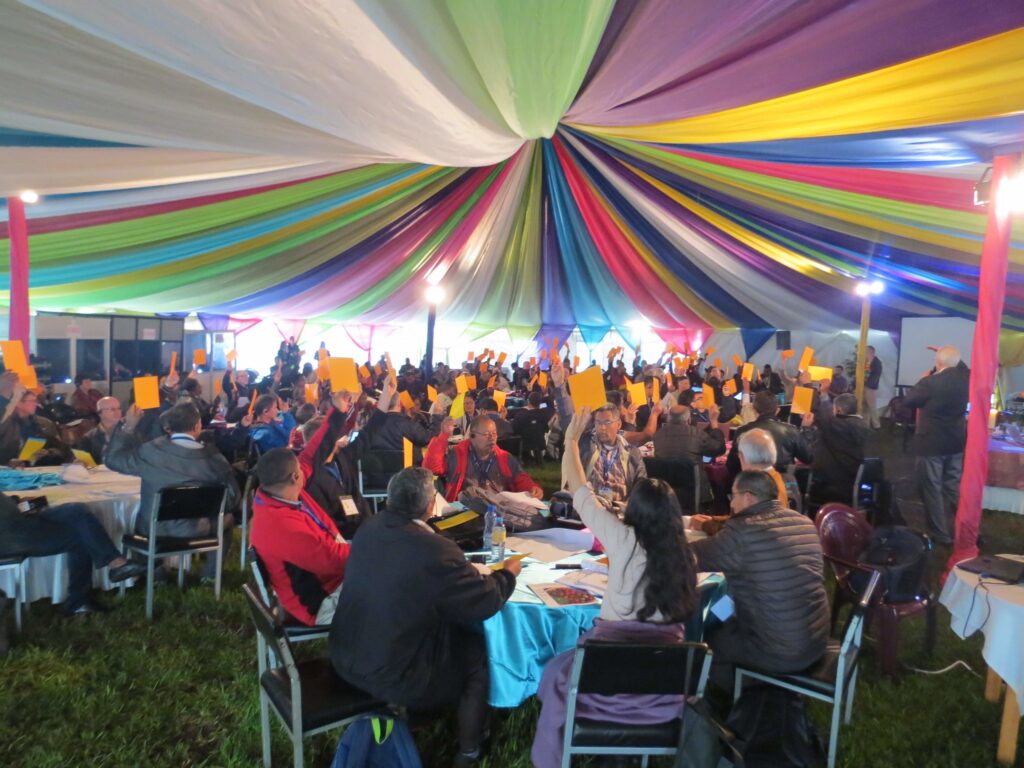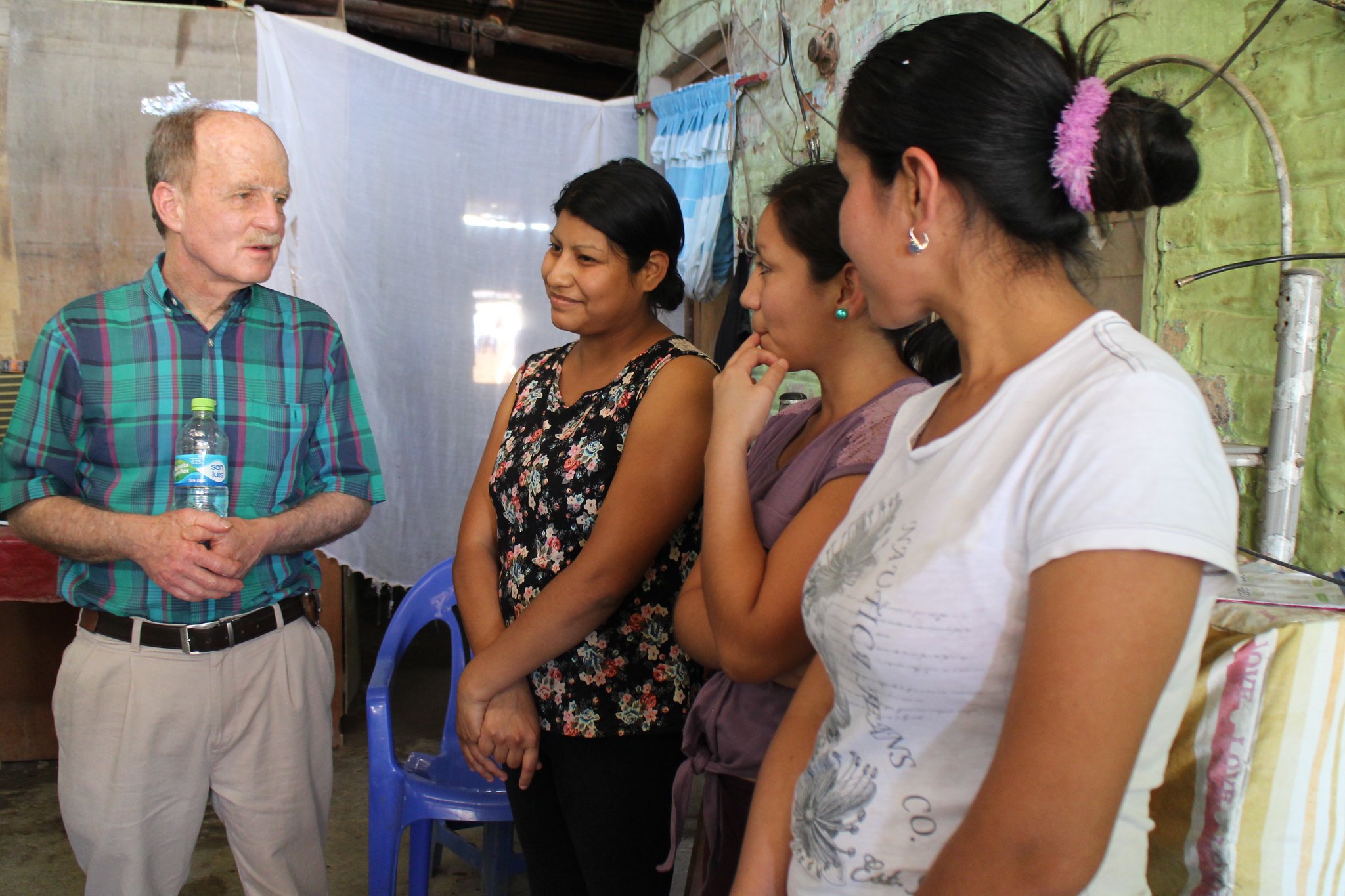“Hello! How can I join you?” This question often comes through Mennonite World Conference’s social media accounts.
But what does it mean to be a member of MWC?
MWC exists to be a global community of faith in the Anabaptist tradition, to facilitate relationships between Anabaptist-related churches worldwide, and to relate to other Christian world communions and organizations.
However, there is a formal process for becoming a member of this global communion.
The leadership of a national church body begins an application process. It culminates with approval from the General Council. Local congregations and their individual members become part of MWC through membership of their national church.
“Being part of MWC means becoming part of a family. We pray for one another. We collaborate on worship resources so we can practice our sense of togetherness while we are physically apart. We care for one each other in suffering and in joy,” says Arli Klassen, regional representatives coordinator.

Delegates appointed by MWC national member churches become the General Council members who learn and discern together at meetings every three years.
In order to become an MWC member church, the requesting body must have at least two local congregations with a total of at least 500 baptized members and must have been operating with official status for at least 5 years. Smaller national churches may become associate member status.
“Membership in MWC means all member churches are publicly known to be part of the world-wide Anabaptist Mennonite communion,” says Arli Klassen. “Being part of MWC involves both rights and responsibilities for each national member church.”
Becoming a member church of MWC is a three-stage process that takes several years.
The first stage…
is getting to know one another.
The requesting church leaders and the MWC regional representative will get in contact (this is more difficult now during COVID times) to get to know each other.
The church will receive publications from MWC (Courier/Correo/Courrier twice a year and MWC Info e-newsletter monthly).
The church will also contact existing MWC member churches in the region.
National church leaders are welcome to attend the MWC General Council meetings at this point in the process, at their own expense.
The second stage…
involves a formal application and visit from an MWC representative.
Usually, these representatives will attend activities such as a worship service, a Bible study, a prayer meeting, and a youth group. They will talk with the national governing body and local leadership about their vision, theology, mission, practices, governance, relations to other churches and significant problems.
After MWC staff have gotten to know the requesting church and discerned the application with the MWC general secretary,…
the third stage is reached.
The national church can be officially welcomed into MWC as a member after the Executive Committee has discerned to accept the request and the General Council has reached consensus on the request for membership.
What does it mean to be an Anabaptist-related church?
MWC does not follow a creed or require churches to adhere to certain theological positions. Instead, MWC has a statement of 7 convictions shared by all MWC member churches.
“MWC’s Shared Convictions are the result of a process that looked for Anabaptist convictions arising ‘from below’” says general secretary César García. “These convictions are offered both as a testimony of our faith walk as a global family and as a calling.”
A written document called “Mutual Expectations,” forms a covenant between member churches and MWC. This is reviewed every three years on the schedule with General Council meetings. This is also used to document the annual “Fair Share” membership contribution by national church members.
“For a national church to be member of MWC is a wonderful answer to Jesus’ prayer in John 17:20-23, ‘I ask not only on behalf of these, but also on behalf of those who will believe in me through their word, that they may all be one… so that the world may believe that you have sent me,’” says Pablo Stucky, MWC regional representative for the Andean region of Latin America.

